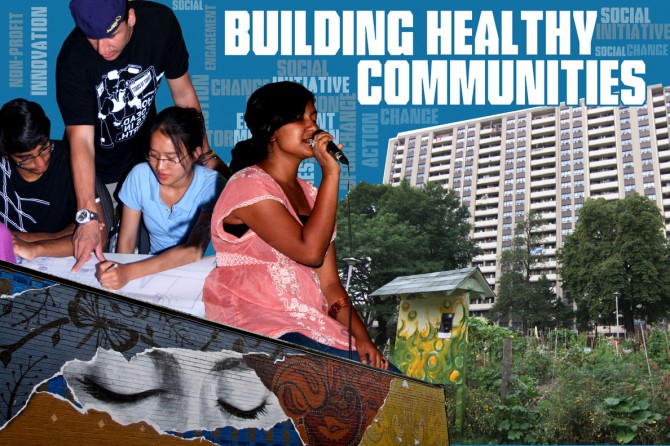Beyond Policy ‘Lock-In’? The Social Economy and Bottom-Up Sustainability
Keywords:
sustainability, social economyAbstract
Social economy innovation in sustainability is altering policy environments. The activities of green social organizations combine social and ecological missions in ways that pose new questions across sometimes discrete policy silos and levels, identify emergent policy problems and solutions, and generate new alliances of social actors who pressure for ecologically sound and socially “just” change. In this paper we analyze a series of green social economy organizations that integrate social concerns with climate and ecological concerns. In our analysis we discuss their efforts at “bottom-up” social innovation and policy development. We conclude with a critique of the ways in which the culture of policy-making acts as an obstacle to the transition towards a greater sustainable future. L'innovation de l'économie sociale en matière de durabilité transforme les cadres politiques. En combinant une mission sociale et une mission écologique, les activités menées par les organismes d'économie sociale verte soulèvent de nouvelles questions au sein de structures et de niveaux politiques parfois cloisonnés. De plus, ces activités mettent en évidence des problèmes politiques imminents ainsi que des solutions, et engendrent de nouvelles alliances entre des acteurs sociaux qui font pression pour que se produise un changement écologiquement rationnel et socialement juste. Dans cet article, nous analysons plusieurs organismes d'économie sociale verte qui assimilent les problématiques d’ordre social, climatique et environnemental. Nous y discutons des efforts déployés en faveur d'une approche « ascendante » de l'innovation sociale et de l'élaboration de politiques. Nous terminons par une critique des différents obstacles que la culture d'élaboration des politiques oppose à la transition vers un avenir durable meilleur.Downloads
Published
How to Cite
Issue
Section
License
1-The author guarantees that the manuscript is an original work not published elsewhere in print or electronically in whole or in part, except in abstract form, that the author has the full power to make this contribution, and that the manuscript contains no matter libelous or otherwise unlawful or which invades the right of privacy or which infringes any proprietary right.
2-The author guarantees that the manuscript has not been previously published in print or electronically and that if the manuscript contains any tables, figures or images fully reproduced or closely adapted from previously published material, the author must obtain the necessary permission from the author/publisher holding the original copyright prior to publication in CRSP. The author may be required to produce evidence of permission granted to CRSP’s editors.
3-As a condition of publication in CRSP, the author assigns all copyright to CRSP, including but not limited to the right to publish, republish, and otherwise distribute this manuscript in print, electronic, or other formats. As CRSP is a non-profit interdisciplinary scholarly journal, the author will receive no royalty or other monetary compensation for the assignment set forth in this agreement.
For the purpose of full disclosure, CRSP will not normally use the content provided by the author in a commercial venture, but for the purpose of disseminating the author’s content to as many readers as possible. For distribution, third parties engaging in commercial activities may be contracted to distribute the content globally, and such parties may make a profit out of the author’s content in their normal course of business. CRSP will not pay the author or reimburse the author in any form based on such commercial activities because the conduct of such commercial activities is outside the control of CRSP.
Any future reference to or use of this published material by the authors must acknowledge CRSP as the original place of publication.
PERMISSION REQUEST/ARCHIVING
Permission is given to author(s) receiving funding via Tri-Council Agencies, the Canadian Institutes of Health Research (CIHR), the Natural Sciences and Engineering Research Council of Canada (NSERC) and the Social Sciences and Humanities Research Council (SSHRC), to make their publications freely available in an Open Access repository within the stated deadline by the Tri-Council Agencies (12 months following publication). Archiving of publication must be a manuscript copy bearing none of the CRSP headers, footers or any other distinguishing marks. No links to the article on the CRSP website is permitted.
Permission requests from third parties to reproduce articles in part or full in academic/educational publications can be directed to the managing editor of CRSP, and will not be unreasonably denied.

